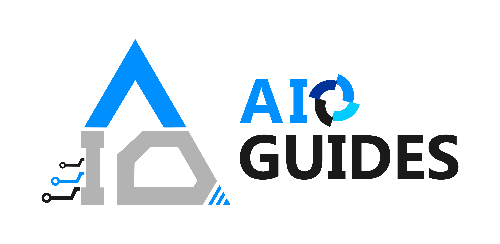Google IoT: Harnessing the Power of Internet of Things

The Internet of Things (IoT) has revolutionized how we interact with our surroundings and Google has been at the vanguard of this modification. Google IoT guides to the suite of technologies and benefits provided by Google to enable IoT resolutions.

The Evolution of Google IoT
Early Developments: Google’s journey in IoT started with exploratory projects and acquisitions. Recent Advances: In recent years, Google has made significant advancements, particularly in integrating IoT with AI and cloud computing.
Key Components of Google IoT
Google IoT comprises several key components essential for creating comprehensive IoT solutions. Firstly, Google Cloud IoT Core stands as a pivotal usefulness, enabling closed and efficient management of IoT gadgets and data processing on an international scale. Secondly, the Edge TPU, a technical hardware accelerator, greatly enhances engine learning stuff on edge devices, delivering faster, more efficient processing.
Google Cloud IoT Core: This worked service allows users to effortlessly and securely attach, manage, and consume data from millions of globally distributed devices.
Edge TPU: This custom-designed hardware accelerator is used to speed up device learning (ML) deduction on edge machines.
Android Things: This OS is developed to power smart appliances and IoT applications.
Understanding Google Cloud IoT Core
Features and Capabilities: Google Cloud IoT Core offers a rich set of components for device control and data processing. Use Cases: It’s used in different sectors from smart homes to industrial mechanization.
Exploring Edge TPU
What is Edge TPU? This technology brings Google’s machine learning expertise to the edge, allowing for faster processing and decision-making. Applications: Used in devices where low latency and high efficiency are crucial.

Diving into Android Things
Overview: Android Things extends the Android ecosystem to IoT. Benefits for Developers: It provides a familiar platform for developers to create IoT products.
Integration with Other Google Services
Google seamlessly integrates with a range of other Google services, such as Google’s powerful AI and machine learning platforms, to enhance the functionality and intelligence of IoT solutions. This integration also extends to Google Assistant and various home automation services, enabling users to create more interconnected, responsive, and smart environments.
Real-World Applications of Google IoT
Google technology is being executed in a combination of real-world applications, from working smart city infrastructures to optimizing manufacturing operations. Its use in healthcare for patient monitoring and in residential settings for intelligent home automation emphasizes its versatility and energy in enhancing efficiency and grade of life.

Challenges and Solutions in Google
Security Concerns: Addressing security in IoT devices is a top priority for Google. Scalability: Google offers scalable solutions to manage the growing number of IoT devices.
Future Trends in Google IoT
Future trends in Google are alleged to be caused by the increasing integration of cutting-edge artificial intellect and apparatus learning, allowing more independent and smart IoT systems. Additionally, the focus will be on improving interoperability and data analytics capacities, making IoT answers more efficient, scalable, and adjustable to evolving technological topography.
Comparative Analysis with Competitors
In a comparative analysis, Google differentiates itself from rivals like Amazon AWS IoT and Microsoft Azure IoT through its seamless integration with Google’s AI and machine knowledge technologies, and a user-friendly platform that highlights scalability and security. This unique combination of characteristics positions Google as a versatile option for a wide spectrum of applications, from smart home devices to industrial automation.
Best Practices for Implementing Google
When executing Google, it’s crucial to embrace a strategic procedure that contains thorough planning, understanding the precise requirements of your undertaking, and leveraging Google’s comprehensive IoT resources. Additionally, it’s necessary to prioritize security, scalability, and efficient data governance to ensure a strong and trustworthy IoT ecosystem.

Resources and Learning for Google
Google offers a wealth of resources for Google, including detailed official documentation and a dynamic community forum where developers and enthusiasts can share insights and seek guidance. These platforms provide comprehensive learning materials, from beginner guides to advanced technical references, ensuring support for all levels of expertise in IoT development.
Conclusion
In conclusion, Google IoT substantially improves the Internet of Things terrain, offering powerful, scalable, and clever answers. Its integration with Google’s AI and machine understanding and its user-friendly platforms places it as a key participant in steering the future of intelligent technologies. As we resume to see its applications grow across various initiatives, Google stands as a testament to the transformative force of technology in improving both efficiency and quality of life in our increasingly united world.
FAQs of Google IoT: Harnessing the Power of Internet of Things
How does Google IoT benefit businesses?
Google IoT offers businesses scalable and protected IoT keys, helping efficient data governance, real-time analytics, and integration with cutting-edge AI and device learning for wiser decision-making.
What are the security features of Google IoT?
Google IoT places a strong emphasis on security, incorporating advanced encryption, robust access control, and continuous security updates to protect devices and data in the IoT network.
Can Google IoT be integrated with existing systems?
Yes, Google IoT is designed for high interoperability, allowing seamless integration with existing systems and other Google services like Google AI and machine learning platforms.
Is Google IoT suitable for small-scale projects?
Google IoT: Harnessing the Power of Internet of ThingsHow Do You Like Our Post
0






